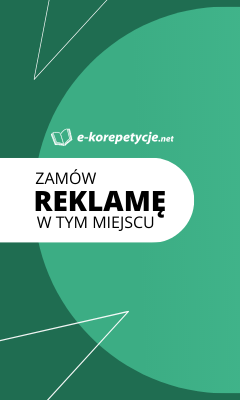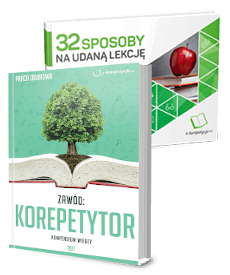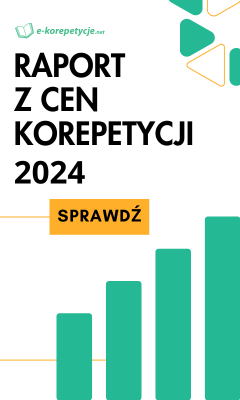Dzisiaj mała ściągawka w angielskich czasów. Jak budować zdania, pytania i przeczenia. Mamy nadzieję, że przyda się do powtórki.
| Zdanie oznajmujące | Zdanie pytające | Zdanie przeczące | ||||
| Present Simple (mówimy w nim o rzeczach powtarzających się, cyklicznych, odbywających się w teraźniejszości) | podmiot + czasownik + reszta zdania | operator Do/Does + podmiot + czasownik + reszta zdania + ? | podmiot + do/does + not + czasownik + reszta zdania | |||
| I read a book. | Do I read a book? | I do not read a book. | ||||
| He reads a book. | Does he read a book? | He does not read a book. | ||||
| They read a book. | Do they read a book? | They do not read a book. | ||||
| Present Continous (czas służy do opisywania zdarzeń w teraźniejszości, które dzieją się aktualnie) | podmiot + czasownik to be + czasownik z końcówką -ing + reszta zdania | To be + podmiot + czasownik z końcówką -ing + reszta zdania + ? | podmiot + to be + not + czasownik z końcówką -ing + reszta zdania | |||
| I am reading a book. | Am I reading a book now? | I am not reading a book now. | ||||
| He is reading a book. | Is he reading a book now? | He is not reading a book now. | ||||
| They are reading a book. | Are they reading a book now? | They are not reading a book now. | ||||
| Present Perfect (służy do opisywania doświadczeń lub czynności wykonanych w nieokreślonym czasie, takich, których skutki widzimy aktualnie) | podmiot + have/has + czasownik w III formie + reszta zdania | operator Have/Has + podmiot + czasownik w III formie + reszta zdania + ? | podmiot + have/has + not + czasownik w III formie + reszta zdania | |||
| I have eaten my dinner. | Have I eaten my dinner? | I have not eaten my dinner. | ||||
| He has eaten his dinner. | Has he eaten his dinner? | He has not eaten his dinner. | ||||
| They have eaten their dinner. | Have they eaten their diiner? | They have not eaten their dinner. | ||||
| Present Perfect Continous (służy do opisywania czynności, które trwają już jakiś czas) | podmiot + have/has + been + czasownik z końcówką -ing + reszta zdania | operator Have/Has + podmiot + been + czasownik z końcówką -ing + reszta zdania + ? | podmiot + have/has + not + been + czasownik z końcówką -ing + reszta zdania | |||
| I have been reading a book for 20 minutes. | Have I been reading a book for 20 minutes? | I have not been reading a book for 20 minutes. | ||||
| He has been reading a book for 20 minutes. | Has he been reading a book for 20 minutes? | He has not been reading a book for 20 minutes. | ||||
| They have been reading a book for 20 minutes. | Have they been reading a book for 20 minutes? | They have not been reading a book for 20 minutes. | ||||
| Past Simple (służy do określenia czynności, które miały miejsce w przeszłości w określonym czasie i zostały zakończone) | podmiot + czasownik w II formie + reszta zdania | operator Did + podmiot + czasownik + reszta zdania + ? | podmiot + did + not + czasownik + reszta zdania | |||
| I wrote the letter yesterday. | Did I write the letter yesterday? | I did not write the letter yesterday. | ||||
| He wrote the letter yesterday. | Did he write the letter yesterday? | He did not write the letter yesterday. | ||||
| They wrote the letter yesterday. | Did they write the letter yesterday? | They did not write the letter yesterday. | ||||
| Past Continous (służy do określenia czynności, które miały miejsce w przeszłości w określonym czasie i nie zostały zakończone). | podmiot + was/were + czasownik z końcówką -ing + reszta zdania | Was/Were + podmiot + czasownik z końcówką -ing + reszta zdania + ? | podmiot + was/were + not + czasownik z końcówką -ing + reszta zdania | |||
| I was reading a book all day. | Was I reading a book all day? | I was not reading a book all day. | ||||
| He was reading a book all day. | Was he reading a book all day? | He was not reading a book all day. | ||||
| They were reading a book all day. | Were they reading a book all day? | They were not reading a book all day. | ||||
| Past Perfect (służy do określenia czynności zakończonych w przeszłości, przed innym zdarzeniem, które również miało miejsce w przeszłości, tzw. czas zaprzeszły). | podmiot + had + czasownik w III formie + reszta zdania | operator Had + podmiot + czasownik w III formie + reszta zdania + ? | podmiot + had + not + czasownik w III formie + reszta zdania | |||
| I had read a book before I wrote the letter. | Had I read a book before I wrote the letter? | I had not read a book before I wrote the letter. | ||||
| He had read a book before he wrote the letter. | Had he read a book before he wrote the letter? | He had not read a book before he wrote the letter. | ||||
| They had read a book before they wrote the letter. | Had they read a book before they wrote the letter? | They had not read a book before they wrote the letter. | ||||
| Future Simple (służy do określenia czynności w przyszłości, sczególnie na podstawie własnych obietnic, decyzji). | podmiot + will + czasownik + reszta zdania | operator Will + podmiot + czasownik + reszta zdania + ? | podmiot + will + not + czasownik + reszta zdania | |||
| I will give you a pen. | Will I give you a pen? | I will not give you a pen. | ||||
| He will give you a pen. | Will he give you a pen? | He will not give you a pen. | ||||
| They will give you a pen. | Will they give you a pen? | They will not give you a pen. | ||||
| Future Continous (służy do opisywania czynności, które będą miały miejsce w przyszłości w określonym czasie). | podmiot + operator will + be + czasownik z końcówką -ing + reszta zdania | operator Will + podmiot + be + czasownik z końcówką -ing + reszta zdania + ? | podmiot + operator will + not + be + czasownik z końcówką -ing + reszta zdania | |||
| I will be writing a letter tonight. | Will I be writing a letter tonight? | I will not be writing a letter tonight. | ||||
| He will be writing a letter tonight. | Will he be writing a letter tonight? | He will not be writing a letter tonight. | ||||
| They will be writing a letter tonight. | Will they be writing a letter tonight? | They will not be writing a letter tonight. | ||||









